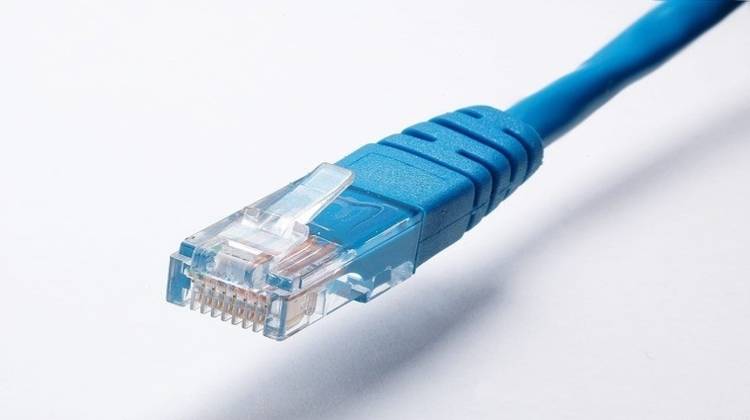It’s no secret that London seriously lags behind in its broadband speeds when compared to other parts of the world, and even when compared to other parts of the UK. While the national average is around 44 Mbps, many of London’s boroughs average much lower speeds, according to Ofcom. For example, Southwark has speeds as low as 10.4 Mbps on average. That’s just a touch higher than Mumbai, which averages 10.3 Mbps. For many businesses that speed certainly isn’t acceptable in a city like London. While other parts of the world are enjoying the benefits of higher broadband speeds (98.2 per cent of New York City residents have access to speeds of 100 Mbps or faster, according to BroadbandNow.com), London’s enterprises are suffering.
How Enterprises Suffer at the Hands of a Slow Broadband Connection
Approximately one-fifth of UK businesses are based in London. A good amount of those businesses are small and medium-sized businesses (SMBs) that are unable to get adequate service needed to efficiently and run their organization.
One area that many SMBs struggle most with when they suffer from slow internet speeds is communications. When it takes longer to send files between employees or customers, an organization is losing not only time, but also money.
An additional hurdle faced by many organisations is that when they decide to use the cloud for security and other benefits, they are at the mercy of both download and upload speeds. The demands of the digital age (whether individual users or applications) don’t have patience to deal with the inability to access data and applications, meaning businesses will suffer without proper broadband speeds.
Future Improvements to the Speed of London’s Broadband
While the UK government has promised to require broadband providers to deliver a minimum speed of 10 Mbps to its customers by 2020, 10 Mbps is still slow. And although the national broadband scheme (BDUK) has been able to provide ‘superfast broadband’ of 24 Mbps to over 95 per cent of business and residential customers in the UK, London still lags behind.
What Exactly Is ‘Broadband’ and How Is It Good for Business?
Although you may have high-speed internet, that doesn’t necessarily mean you have broadband service. Broadband is now defined as a minimum upload speed of 3 Mbps. There is a chance that your current DSL plan is no longer considered broadband. If so, you may be struggling with the decision to pay more for broadband. Still, it shouldn’t be a difficult decision at all. While you may pay more upfront, your return on investment will thank you, as there are many ways that efficient broadband speeds can improve business. Here are just 11 of those benefits:
1. Higher Efficiency
Taking a look at statistics helps bring home the true consequences of slow internet speeds. For example, an e-commerce monster like Amazon can lose 1.6 billion USD in sales if there is just a one-second delay in the time it takes to load pages. Time is money. If your organisation spends a significant amount of time relying on the internet, there is a lot of money to be lost when the internet can’t support your efforts.
2. Happier Employees and Satisfied Customers
A slow internet connection can cause undue stress to your employees as their jobs become more difficult when they don’t have the proper tools (i.e. an efficient internet connection) in order to deliver. If an employee has to deal with this day in, day out, imagine the effect on morale. Poor morale can spiral out of control and affection retention rates. If a customer has to deal with this regularly, they’re likely to simply leave for a competitor.

3. Supports Multiple Users
For most businesses, the need to employ more staff is a good need to have, as it indicates growth in the company. However, if more staff also means more devices the internet connection has to support, but the broadband is too slow to support said device, you may as well not hire any more staff at all. Additional users will impact internet speeds, and if your provider can’t support them, it’s bad for business.
4. Eliminates Unnecessary Costs
As mentioned previously, it’s no secret that an efficient staff is good for business. And an efficient staff relies on an efficient internet speed. As such, there are cost savings to be realised. But there are also other direct savings enterprises can benefit from when they have a reliable broadband connection.
Take the example of a company called Grant Thornton, Inc. They saved $800,000 USD during their first year of utilising Voice over Internet Protocol (VoIP), which allows for phone calls to be made via the internet instead of a more expensive analogue line. Of course, that wouldn’t have been possible without a decent broadband connection to support it.
5. Better Collaboration
Besides making it easier for employees to share large files amongst each other, a better broadband speed can also make it easier to collaborate with vendors and customers. This is especially true when more and more businesses are using cloud sharing platforms like Google Docs. Companies can benefit financially when they’re able to use more electronic technologies in general. In fact, one study found that companies who adopted broadband-enabled technologies are able to see revenue increases of up to 31 per cent. It would be a shame to lose out on that ROI because of something as fixable as a slow broadband connection.
6. A Better Digital Presence to Help You Reach New Clients Worldwide
Slow broadband can hamper your ability to reach an untouched share of the market. When you think of all those potential customers just sitting there waiting to be approached by a competitor, it becomes more apparent how time is of the essence. Organisations will suffer at the hands of slow broadband if they can’t effectively reach new customers.
In contrast, a faster broadband speed can help you digitalise everything, starting with marketing. You can not only reach customers in a more efficient manner, but also track those communications to see which leads are converting and which leads you need to work on. In addition, you can also improve the communications you use to attract those customers. By enhancing your graphics and audio tools, you can make a better impression without being hampered by a poorly functioning broadband service – no matter what part of the world they’re in.

7. Better Use of (and Benefits From) Social Media
You’ve likely heard stories of companies that have found success solely through the use of social media. Sites like Twitter, LinkedIn and Facebook aren’t going anywhere, and people are finding more ways to use them to their advantage. In addition, the software itself is constantly evolving to meet the growing demands of their users – whether individuals for entertainment purposes or organisations for business purposes. In short, social media helps businesses reach new audiences in a cheap, easy and efficient way. You can easily have engaging communications with potential customers and existing customers using social media, but only if you have efficient broadband. When a customer is waiting for a response at the other end of the conversation, the last thing you want to do is to keep them waiting due to slow internet speeds. Imagine the damage it could do to your reputation if they, in turn, post something about how you kept them waiting with no response.
8. Validates Use of the Cloud and Lowers IT Costs as a Result
High-speed internet and a reliable broadband connection together allow organisations to use cloud-based IT. As such, their applications are hosted in ‘the cloud’ as opposed to on a hard drive or physical server. While it might seem scary to think that your valuable intellectual property is in the cloud and exposed to whoever wants it, the opposite is true. It can only be accessed by authorised users and can also be encrypted for added protection. The catch is that the cloud is of no use if it takes too long for the data to get to it and from it.
While the benefits of using the cloud are countless, using it for safer, more efficient data storage means constantly having to upload and download data. That’s not a problem efficient broadband. However, businesses with slow broadband will take a much greater amount of time when accessing or saving data to the cloud. According to recent data from Integra, 45 per cent of organisations say slow bandwidth is a hindrance to moving to cloud-based storage. That means almost half of such businesses are putting their intellectual property and reputation at risk, on top of losing out on the efficiency that high broadband speeds can offer.
One of those efficiencies lies is in the areas of payroll, billing and customer support. There are a lot of options available to take those services out of house to automated processes that use the cloud to offer a better, more reliable value than in-house options can. That way, your staff can focus on less mundane, more important tasks that boost not only efficiency, but also morale.

9. Reduces Regulatory Risks
Again attributed to the use of the cloud is the ability to comply with government regulations automatically. Cloud-based service providers tend to patch and update their products and services themselves, as opposed to the business owner or IT department having to regularly monitor their network and software. This can be a double-edged sword, however, as you have to trust that they are indeed updating their products as they promise. But considering it is their livelihood, they’d have just as much to lose (if not more) than you, for failing to adhere to regulatory compliance. If you can find a cloud-based service provider you trust, you can breathe a sigh of relief knowing that you can focus more on running your business and less on worrying about dealing with regulatory risks.
10. Allows for Flexible Work Policies and Remote Employees
Another benefit is the ability to allow for remote workers, which can save costs in terms of office space demands and higher rent. Cloud-based document sharing allows employees to work wherever they have an efficient broadband connection. It also boosts employee morale, especially considering that more than half of employees expect the option to work remotely and with a flexible work schedule that may not conform to the traditional in-office hours. As a result, there is a better work-life balance among employees.
11. Move and Back Up Data More Quickly
Because of efficient broadband, security-certified data centres make data more easily transferred and easier to recover if lost. Routine backups are no longer the responsibility of SMBs, but instead the responsibility of the data centre vendor. What’s more, there’s no longer the need to rely on an aging server or physical or environmental risks to that server.
A Short-term Solution
There’s no argument that the cost of upgrading to an efficient broadband speed is minimal when compared to its benefits. But until businesses in London are given better access to efficient broadband speeds, some small businesses have benefited from using personal broadband connections as opposed to a business plan. Some personal 50 Mbps plan can amount to less than £75 per month. That’s a short-term solution to addressing long-term losses.
Computers in the City, your IT partner
Computers in the City is London’s longest standing IT support partner. With over 20 years’ experience, we can assist you with email and IT support.
We’re proud to be local, offering 24-hour support in straightforward language that takes the stress out of IT.
